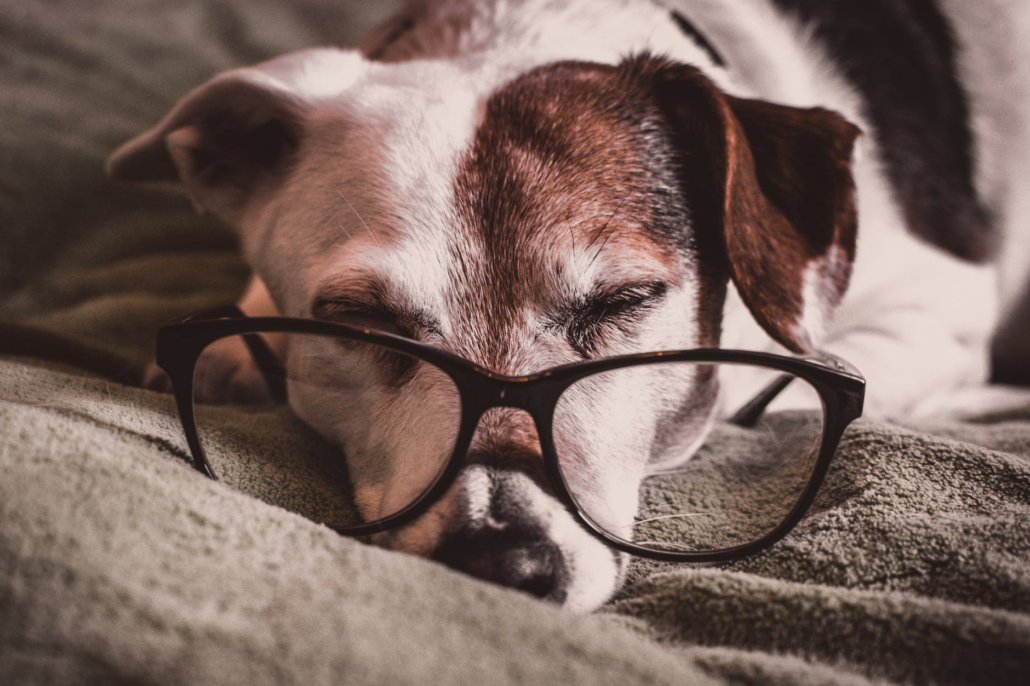Tips for Making Your Pet’s ‘Golden Years’ Happy and Healthy
There’s no getting around it: Aging happens, even to our beloved four-legged friends. Like us, pets are considered seniors when they’re in the last third of their life span. While a cat may not be a senior until they’re 10, a Great Dane with a shorter life expectancy could be a senior when they’re six! One of the most important things to remember is that advanced aging is not a disease — it’s a time when your pet’s needs are changing. It’s up to you to help them with these changes. Read on for tips on how to help your pet live happier and healthier to a ripe old age.
Don’t Be a Stranger at Your Veterinarian’s Office
Annual veterinary visits should be a part of every pet’s life, but it’s even more important in their senior years. What you think are just signs of old age might actually be a treatable issue. Detecting health problems when they’re still treatable should always be the goal. Also, dental care is vital in preventing heart and kidney disease, bacterial infections, and helping the overall quality of your senior pet’s life. Keeping your pet comfortable and healthy as long as possible begins in your veterinarian’s office.
Be an Observant Pet Owner
You know your pet better than anyone. You’ll be the first to notice if your cat can no longer jump up on their favorite chair or if your dog is no longer interested in playing. The key is recognizing any changes in behavior and communicating them with your vet. Especially be on the lookout for behaviors such as confusion, increased wandering, and increased barking/meowing, as these may be signs of cognitive dysfunction or other treatable diseases.
Make Modifications to Your Pet’s Comfort
As your pet ages, they won’t be able to fully do certain things they once did. That’s where you step in to make any necessary home modifications. For example, some senior dogs may need help getting up on your bed or getting in and out of the car. Pet steps and stairs are available for these situations. Because there are so many options, you’ll want to check the reviews for the ones best suited for your dog. From non-skid carpets to portable ramps and orthopedic beds, whatever your pet’s issue is, there’s a modification for it!
Change Their Diet
Because weight greatly affects senior pets, they have different nutritional needs than when they were younger. An older overweight pet is more susceptible to conditions like arthritis, diabetes, heart disease, cancer, and skin problems. This is why most vets recommend senior diet formulas. Some formulas also contain beneficial supplements, such as glucosamine for joint health and probiotics for digestion. If your senior dog’s weight gain is sudden, along with increased urination and thirst, it could indicate hypothyroidism, kidney issues, or Cushing’s disease. On the other hand, sudden weight loss (especially in cats) is of major concern as well. In senior cats, this could indicate hyperthyroidism, diabetes, or kidney disease.
Don’t Skimp on Exercise
Just because your pet is getting older doesn’t mean their exercise days are over! Exercise is important for all pets to keep their muscles strong, prevent obesity, and help keep them happy and mentally stimulated. Moderation is key, and let your pet be your guide — unless they guide you straight to the couch! All pets need some movement, even if it’s simply regular play times with their favorite toys. Down time is also important so make sure your pet has a comfy place to recover after a long walk or a nice window perch to enjoy the sunshine.
Senior pets do require more TLC, but when you consider all of the unconditional love and adoration they’ve given to you over the years, it’s an honor to care for them now. While your 16-year-old Calico may still be a frisky little kitten to you, keep in mind that they’re really a senior cat, and their needs are much different than they were 10 years ago! Remember that the choices you make now may add years to your pet’s life and much joy to yours as you navigate these golden years with them.


